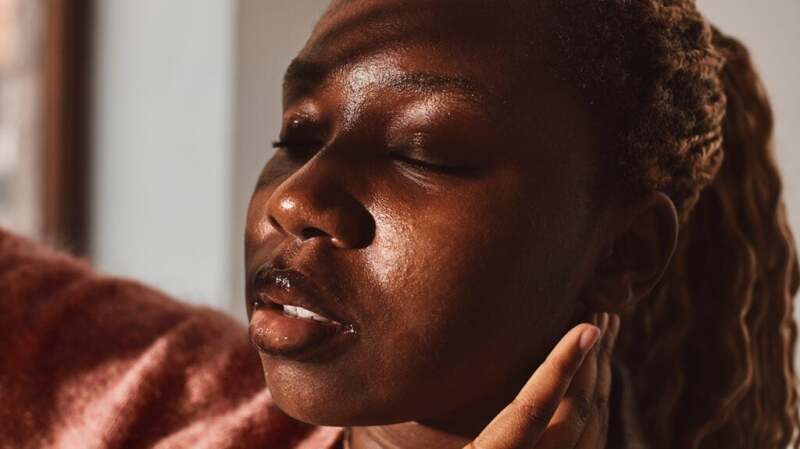Lymph nodes are oval-shaped glands that make white blood cells. Your head and neck have
This article explains what might cause your occipital glands to swell, along with treatments and when you should see a doctor.
Bacterial infections

An infection near your head or neck
Your lymph nodes bulge as your body rushes to make white blood cells.
Some bacterial infections can cause occipital lymph nodes to swell, including:
brucellosis Trusted Source Centers for Disease Control and Prevention (CDC) Governmental authority Go to source - cat-scratch disease
- bacterial pharyngitis
- syphilis
- tuberculosis
Apart from swollen lymph nodes, symptoms that can appear with a bacterial infection include:
- fever or chills
- cough
- nasal congestion
- headache
- sores
Drinking plenty of water to stay hydrated may help manage your symptoms. If necessary, a doctor may prescribe antibiotics.
Viral infections
Many viral infections can also cause swollen lymph nodes.
Mononucleosis
Mononucleosis (mono) is a widespread viral infection that can cause lymph node swelling, including swelling in your occipital lymph nodes.
If you have mono, you may experience:
- sore throat
- fatigue
- fever
- body aches
Treatment for mono mainly
Rubella
Rubella is a contagious viral infection. High vaccination rates in the United States make rubella
If you do develop rubella, your occipital lymph nodes can swell as they create white blood cells to help fight the infection.
Other symptoms of rubella include:
- an itchy, discolored rash that begins on your face
- headache
- coughing
- runny nose
- red eyes
There is
Ringworm
Tinea capitis — ringworm — is a fungal skin infection that causes a discolored, circular rash. If ringworm is on your scalp, it
A medical professional may recommend an oral antifungal medication to help clear ringworm. Creams and lotions are not effective on scalps. You may need to use medication every day for
Once the infection clears, swelling in your occipital lymph nodes should shrink.
Head lice
Head lice are small parasites that show up around the base of your hair. The Centers for Disease Control and Prevention (CDC) reports that children are
In some cases, head lice may cause swollen occipital lymph nodes.
Head lice can cause:
- itching
- hair loss
- fever
- fatigue
You can treat head lice by:
- removing the lice and eggs with a lice comb
- applying medicated creams
- washing your brushes, bedsheets, and clothes
Once the infection resolves, your occipital lymph nodes should return to their pre-infection size.
Psoriasis
Psoriasis is a chronic skin condition that causes dry patches that burn or itch. With psoriasis, your immune system tells your skin cells to grow faster, so they build up.
Psoriasis
A doctor may recommend the following medical interventions for psoriasis:
- light therapy
- retinoid creams
- medications such as methotrexate or cyclosporine
Melanoma
Melanoma is a type of skin cancer. If melanoma is on your neck or head, your occipital nodes
Melanoma is the most aggressive type of skin cancer, meaning it worsens very quickly.
Sometimes melanoma starts as a mole. Regularly check your skin for moles that:
- are asymmetrical
- have a range of colors or an irregular border
- larger than a pencil eraser
- changing quickly in color, shape, or size
Your medical team may use a combination of these treatments to address melanoma:
- skin surgery
- radiation
- immune checkpoint inhibitors
Your lymph nodes are a connected system that runs throughout your body, so cancer can spread to different areas. Seek prompt medical treatment if you see any suspicious moles or have a family history of skin cancers.
Lymphoma
Lymphoma is a medical term used to describe any cancer that starts in your lymphatic system. Your lymphatic system includes any structure that supplies or transports white blood cells, such as your lymph nodes.
Symptoms of lymphoma may include:
- swollen lymph nodes
- fever
- sweating at night
- fatigue
- losing weight for no known reason
Your medical team may treat lymphoma with the following approaches:
- chemotherapy
- biological therapy
- radiation therapy
- immunotherapy
Autoimmune conditions
Autoimmune conditions occur when your immune system becomes overactive and damages healthy body structures. These conditions cause widespread inflammation, which
Some autoimmune conditions that can affect the occipital lymph nodes include:
- sarcoidosis
- amyloidosis
- systemic lupus erythematosus
- rheumatoid arthritis
- Graves’ disease
- Addison’s disease
Treatment options vary greatly depending on what autoimmune condition you have. Your medical team may recommend a combination of medications and lifestyle approaches to address your personal condition.
When to see a doctor
Contact a doctor promptly if you have any of the following symptoms:
- swelling in your lymph nodes that lasts longer than 2 weeks
- fever, night sweats, or chills
- swollen lymph nodes with no other signs of illness
- lymph nodes that feel hardened
- any other symptoms that are frequent, persistent, or seem severe
A doctor can evaluate your swollen occipital lymph nodes and develop a personalized treatment plan for you.
Summary
Your occipital lymph nodes are at the base of your skull. Usually, you don’t notice these glands. However, when they swell, you may be able to see or feel an oval lump of tissue.
Infections can cause swollen occipital lymph nodes, including infections from bacteria, viruses, fungi, and parasites like head lice. Other conditions, like autoimmune disorders and cancer, can also lead to swollen lymph nodes.
Talk with a doctor promptly about any persistent swelling in your lymph nodes, or swelling alongside any other frequent, long-lasting, or severe symptoms.







